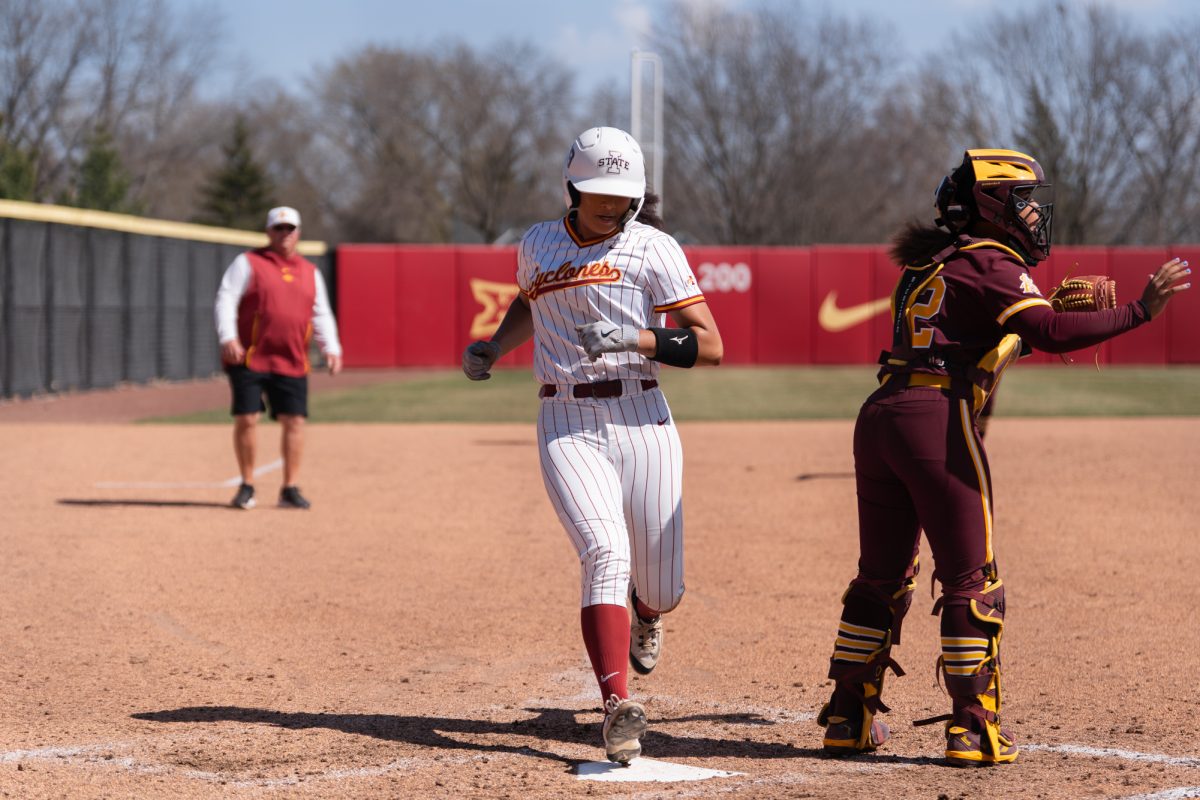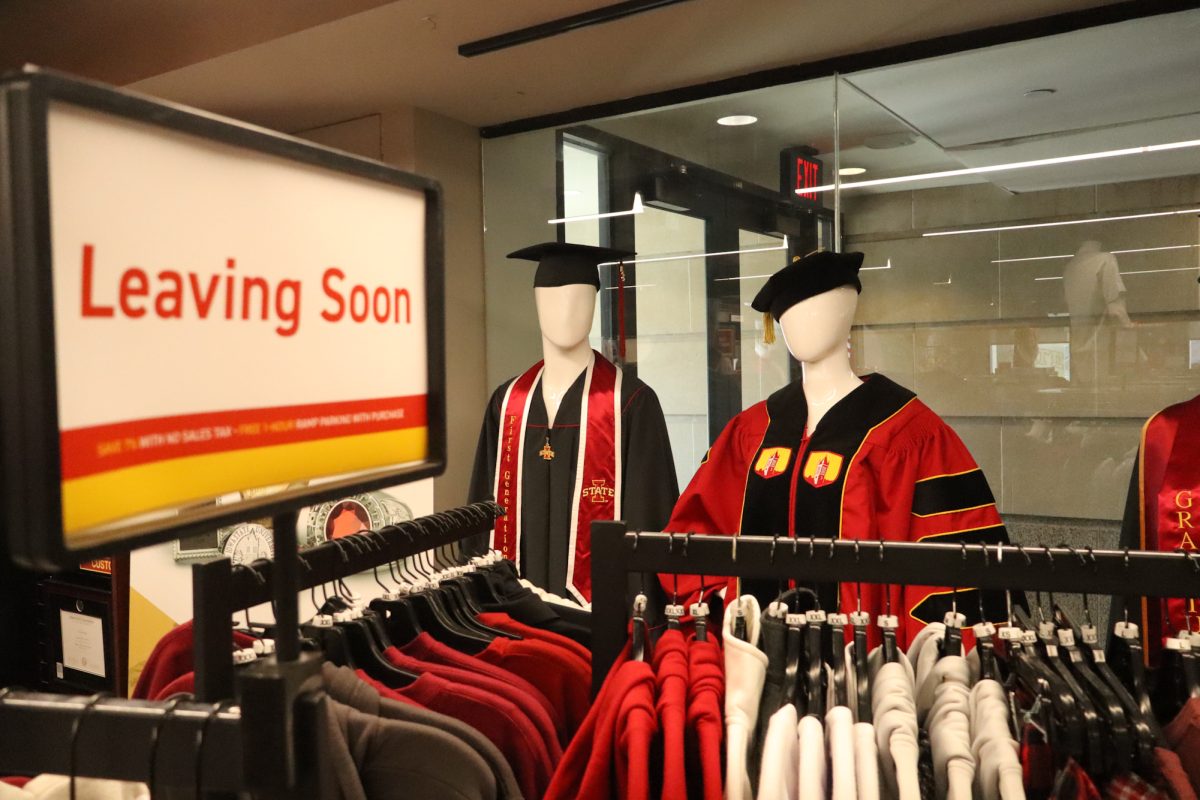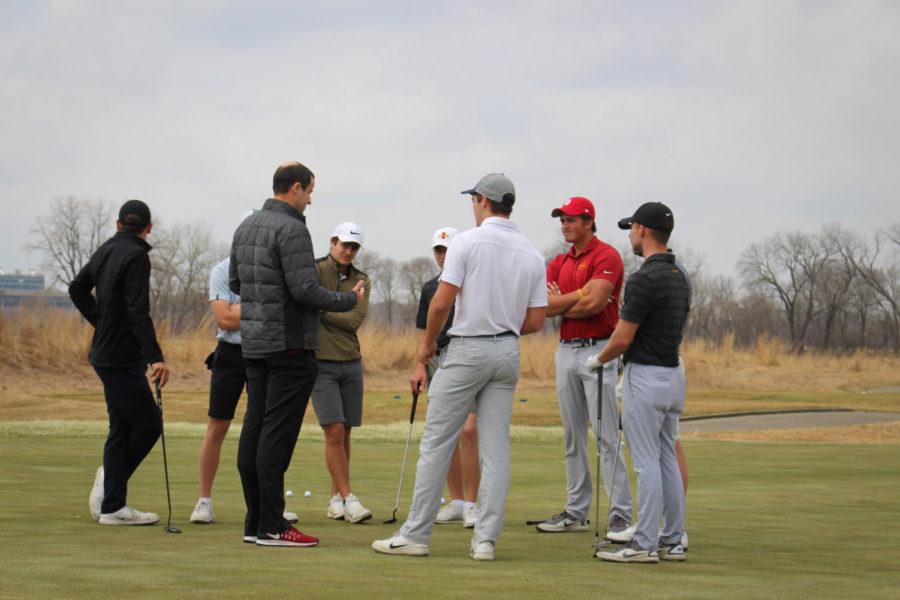Editorial: Use opportunity to affect next ISU President choice
September 20, 2011
The two finalists for the next presidency of Iowa State were named last night, and they will be on campus later this week. Kumble Subbasswamy, provost of the University of Kentucky, will be here Thursday afternoon. Steven Leath, vice president for research and sponsored programs for the University of North Carolina System, will be here Friday afternoon. Each will give a short presentation and then answer questions in an open forum.
If you have any interest at all in participating in selection of the next variety of your university’s administration or in knowing where it’s headed, you should go. On average, presidencies last ten years. Your education here will take up four of those, if you graduate on time. And with fewer and fewer of you graduating in four years and more and more of you graduating in five or six, your stake in having a good president who cares about you and the quality and competitiveness of your education has increased.
The amount of time you’re going to spend here should multiply the likelihood that you’ll be getting one of those 74 seats up in Morrill 2019. If you’re dissatisfied with the way Iowa State, your college, your department, or your courses are run, you should go to these meetings and ask the candidates what they think of the issues confronting you, the students, the people they work for, on a daily basis.
The future belongs to the people who live in it. For those of you who haven’t noticed, that’s you. Twenty-year-olds have more stake in decisions than seventy-year-olds. The reason is simple math: twenty-somethings probably have 45-60 years left to live; seventy-somethings have 15-20.
Sadly, most students don’t care. If they can’t be troubled to vote in national elections for presidential candidates who make decisions that generally aren’t terribly invasive in their lives, why should we think they’ll take two hours out of their time to impact who will set university policy for the next decade? Voter apathy, particularly among youths, shouldn’t exist.
Think of some of the better (and worse) movements in history. From Martin Luther King Jr.’s activity for civil rights in the 1960s to Barack Obama’s 2008 campaign for president to Hitler’s rise to power in the ’20s and ’30s in Germany, youths have been at the heart of innumerable political campaigns that shaped or even fundamentally altered their worlds.
If you act in the appropriate forum, you can make yourself heard. You can persuade people to agree with you, or you can temper their actions with your own wit and wisdom. You can’t do that if you don’t show up. If you don’t take the afternoon off from your nap on Central Campus, you may find that another section of that vast expanse in the middle of a city has been fenced off.
Some of you may be timid and ask by what right should you attend these open forums. You have a voice, don’t you?






